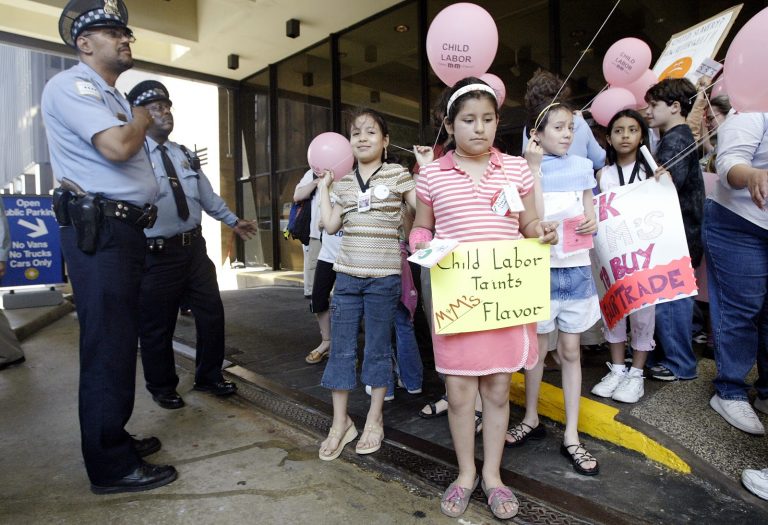Eight young adults have filed a class-action lawsuit against seven chocolate companies in Washington D.C., accusing them of benefiting from child slavery that takes place in cocoa farms. The plaintiffs, who are from Mali, claim that they were used as slave labor in Ivory Coast. They seek appropriate compensation from the companies for the injustice they have suffered.
Chocolate brands named in the lawsuit include Nestle, Mars, Hershey, Mondelez, Olam, Barry Callebaut, and Cargill. The case has been filed on behalf of the eight young adults by the human rights organization International Rights Advocates (IRA).
The lawsuit accused the companies of misleading the public through the 2001 Harkin-Engel Protocol. The companies promised to phase out child labor but failed to achieve their targets. Terry Collingsworth, Executive Director of IRA, said that it is shameful that African children continue to be enslaved in 2021 so that multinational companies can benefit from their labor.
The chocolate companies keep using child slaves
“By giving themselves this series of extensions, these companies are admitting they ARE using child slaves and will continue to do so until they decide it’s in their interests to stop. Based on the twenty years of the failed Harkin-Engle Protocol’s objective record, these companies will continue to profit from child slavery until they are forced to stop. The purpose of this lawsuit is to force them to stop. Enough is enough,” Collingsworth said in a statement.
Success
You are now signed up for our newsletter
Success
Check your email to complete sign up
The eight plaintiffs were tricked when recruited in Mali when they were under 16. They were then transported to the Ivory Coast, accounting for 45 percent of cocoa’s global supply. The children were forced to work in the cocoa farms and could not return to their families.

One plaintiff, who was only 11 years old at that time, had to deal with pesticides and herbicides without any protective clothing. Another child suffered from machete accidents. Both never got paid for their work—slave labor. Most of the plaintiffs had to work long hours, ate little, and were isolated from other child laborers.
The lawsuit has been filed under the Trafficking Victims Protection Reauthorization Act of 2017. One of the key claims is that the chocolate companies “knowingly profited” from the child labor even though they never directly operated the cocoa farms.
Companies are alleged to have developed the cocoa supply chain infrastructure in Ivory Coast, making them participants in the “systemic” abuse of children. One study published last October states that more than 1.5 million children worked in cocoa production during the 2018-2019 season in Ivory Coast and Ghana.
Ending child labor through higher prices
Activists often suggest one way to cut down child labor in the chocolate industry is to boost the prices given to farmers. If Nestle, Mars, Hershey, Mondelez, Olam, Barry Callebaut,made better money, it would incentivize them to stop hiring children and employ adults on their farms. A study from 2019 found that Ghana can end child labor in cocoa farms if the impoverished farmers earn 50 percent more than what they have been earning.
“We figured there has to be some kind of incentive, on top of the laws, to get the farmers to stop using child labor… It’s a really difficult issue because these are very poor farmers … They don’t have many options – they can’t just go and hire people,” Jeff Luckstead, an agricultural economist at the University of Arkansas and co-author of the study, told Reuters.
The government of Ghana and Ivory Coast implemented this idea. Since last October, the buyers have had to pay $400 per ton extra as a premium, a move that is expected to help farmers. Whether this incentivizes farmers enough to stop using child labor is yet to be seen.
Follow us on Twitter or subscribe to our email list
















